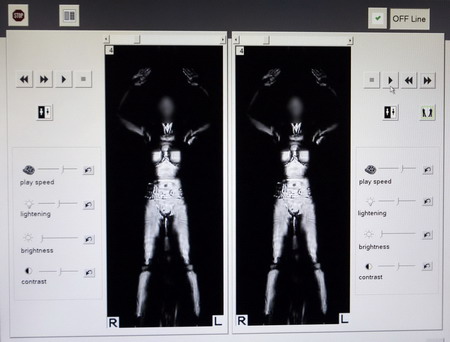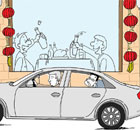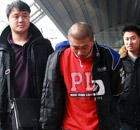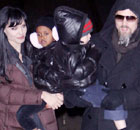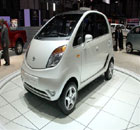Global General
Scanners force trade-off between privacy, security
(Agencies)
Updated: 2009-12-31 17:01
 |
Large Medium Small |
SAN FRANCISCO: As Ronak Ray hunted for his flight gate, he prepared for the prospect of a security guard peering through his clothes with a full body scanner. But Ray doesn't mind: what he gives up in privacy he gets back in security.
"I think it's necessary," said Ray, a 23-year-old graduate student who was at San Francisco International Airport to fly to India. "Our lives are far more important than how we're being searched."
Despite controversy surrounding the scans, Ray's position was typical of several travelers interviewed at various airports Wednesday by The Associated Press.
Airports in five other US cities are also using full body scanners at specific checkpoints instead of metal detectors. In addition, the scanners are used at 13 other airports for random checks and so-called secondary screenings of passengers who set off detectors.
But many more air travelers may have to get used to the idea soon. The Transportation Security Administration has ordered 150 more full body scanners to be installed in airports throughout the country in early 2010, agency spokeswoman Suzanne Trevino said.
Amsterdam's Schiphol Airport has 15 full body scanners, but none were used to scan Abdulmutallab when he boarded. In Europe and the US, privacy concerns over the scanners' ability to see through clothing have kept them from widespread use.
The technology was first used about two years ago to make it easier for airport security to do body searches without making physical contact with passengers.
The idea of an electronic strip search did not bother Judy Yeager, 62, of Sarasota, Florida, as she prepared to depart Las Vegas. She stood in the full-body scanner Wednesday afternoon and held her arms up as a security official guided her through the gray closet-sized booth.
"If it's going to protect a whole airplane of people, who gives a flying you-know-what if they see my boob - whatever," Yeager said. "That's the way I feel, honest to God."
Trevino said the TSA has worked with privacy advocates and the scanners' manufacturers to develop software that blurs the faces and genital areas of passengers being scanned. In all cases, passengers are not required to be scanned by the machine but can opt for a full body pat-down instead.
At Salt Lake City International Airport, fewer than one percent of passengers subjected to the scanner chose the pat-down since the machine was installed in March, said Dwane Baird, a TSA spokesman in Salt Lake City.
On Tuesday, some 1,900 people went through the scanner and just three chose not to, he said.
Critics of the scanners said the option to opt out was not enough.
"The question is should they be used indiscriminately on little children and grandmothers," said Republican US Rep. Tom McClintock of California. McClintock co-sponsored a bill approved by the House in June prohibiting the use of full body scanners for primary screenings. The bill is pending in the Senate.
He said the devices raised serious concerns regarding constitutional protections against unreasonable searches.
"There's no practical distinction between a full body scan and being pulled into a side room and being ordered to strip your clothing."
To further protect passenger privacy, security officers looking at the images are in a different part of the airport and are not allowed to take any recording devices into the room with them, Trevino said. The images captured by the scanners cannot be stored, transmitted or printed in any way.
But the TSA still has some public relations work ahead of it, judging by the reactions of passengers in Albuquerque, New Mexico, who were worried about what would happen to their images once they were scanned.
"Are they going to be recorded or do they just scan them and that's the end of them? How are these TSA people going to be using them? That's a real concern for me," said Courtney Best-Trujillo, who was flying to Los Angeles on Wednesday.
The six airports where full body scanners are being used for what TSA calls "primary screenings" are: Albuquerque, New Mexico; Las Vegas; Miami; San Francisco; Salt Lake City; and Tulsa, Oklahoma.
Though most passengers interviewed by The Associated Press felt security trumped other concerns, Bruna Martina, 48, a physician from the coast of Venezuela, said the scanners still made her feel uncomfortable.
"I think there has to be another way to control people, or to scan them, but not like this," she said as she headed back home after a vacation in Miami with her husband and two sons. She also does not think the scanners will thwart another attack.
"They'll find another way," Martina said. "There is always somebody cleverer than the rest."
